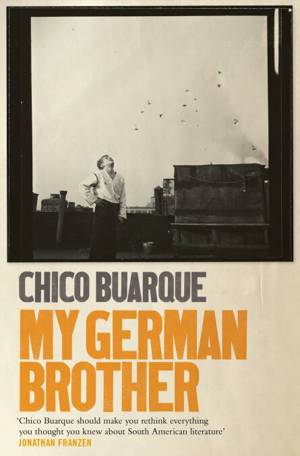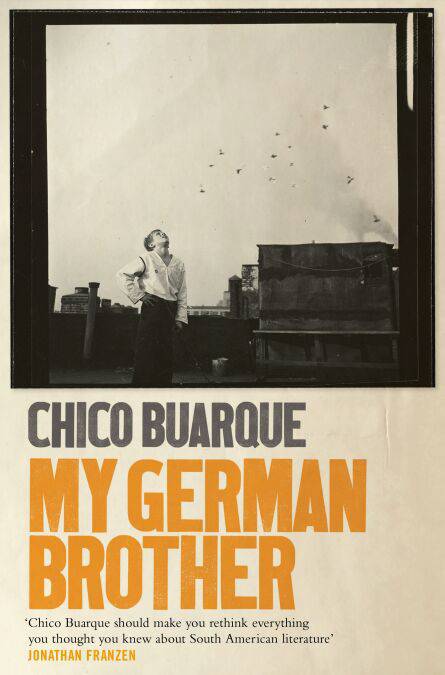
- Retrait gratuit dans votre magasin Club
- 7.000.000 titres dans notre catalogue
- Payer en toute sécurité
- Toujours un magasin près de chez vous
- Retrait gratuit dans votre magasin Club
- 7.000.0000 titres dans notre catalogue
- Payer en toute sécurité
- Toujours un magasin près de chez vous
Description
Ciccio already has many problems: romantic failure, an older brother who seems intent on breaking the heart of every beautiful woman in São Paulo, a distant and larger-than-life father. When Ciccio finds, among the many of his father’s books that line the walls of their house, a troubling letter dated ‘December 21, 1931. Berlin’, his existential crisis only intensifies.
It seems that his father once had a child with another woman – a German son whose fate remains unclear. Ciccio sets out on a mission to locate his lost half-brother, and to win the respect of his father. But as Brazil's military government cracks down on dissent, and rumours of arrests and disappearances spread, while Ciccio has been out looking for his German brother, he finds that he has taken his eye off his immediate family . . .
In writing My German Brother, acclaimed Brazilian novelist and musician Chico Buarque was driven by the desire to find out what happened to his own German half-brother – whether he survived the war in a bomb-ravaged Berlin, whether he had joined the ranks of the Hitler Youth. His novel has been a project of a lifetime, one that makes use of what happened, what might have happened, and pure imagination, in order to weave together the threads of narrative and arrive at a truth.
Spécifications
Parties prenantes
- Auteur(s) :
- Editeur:
Contenu
- Langue:
- Anglais
Caractéristiques
- EAN:
- 9781509806478
- Date de parution :
- 04-04-18
- Format:
- Ebook
- Protection digitale:
- Adobe DRM
- Format numérique:
- ePub

Les avis
Nous publions uniquement les avis qui respectent les conditions requises. Consultez nos conditions pour les avis.






